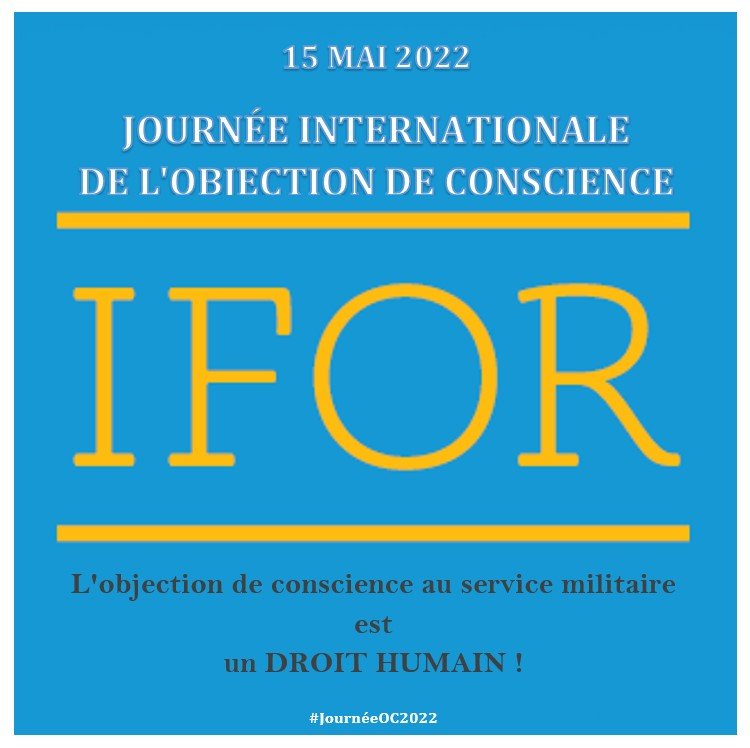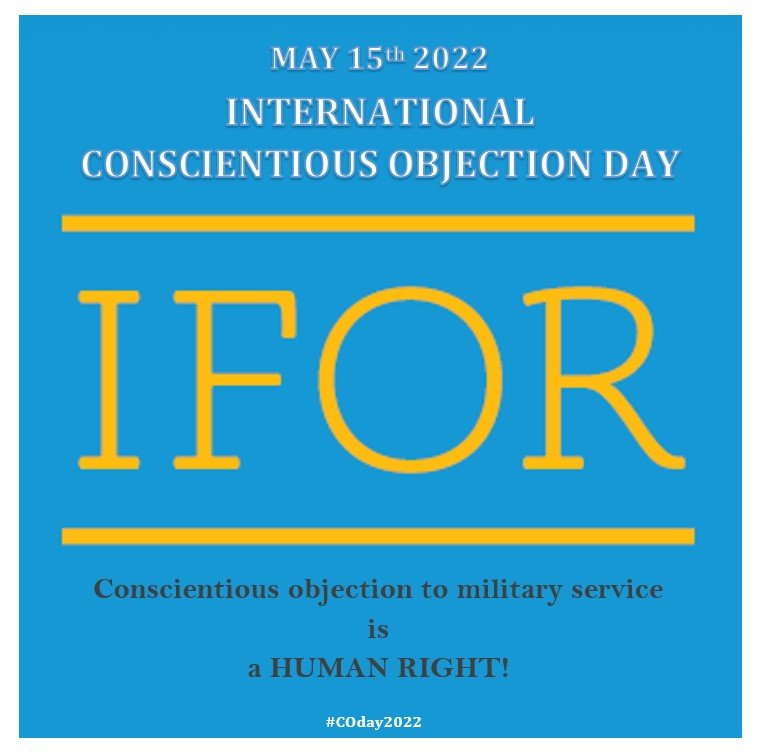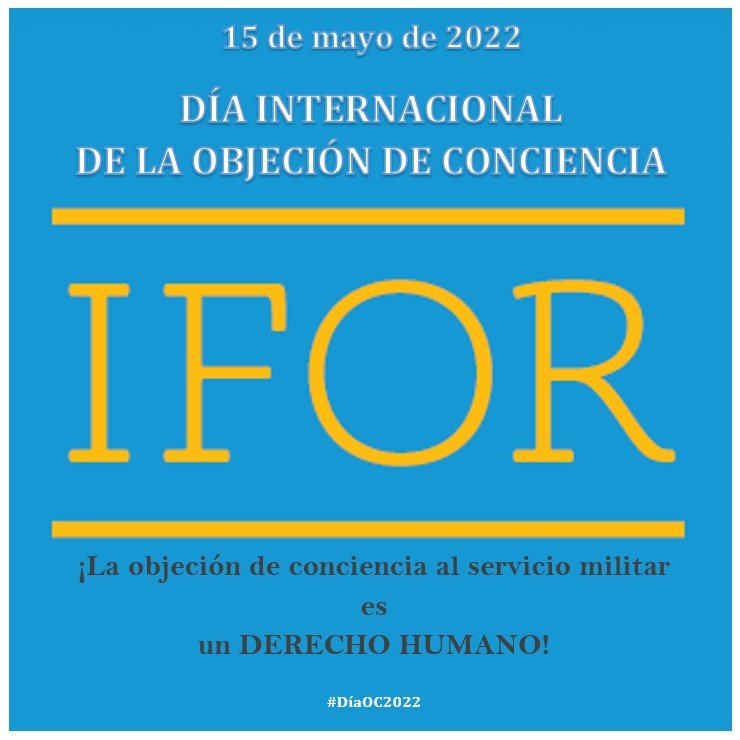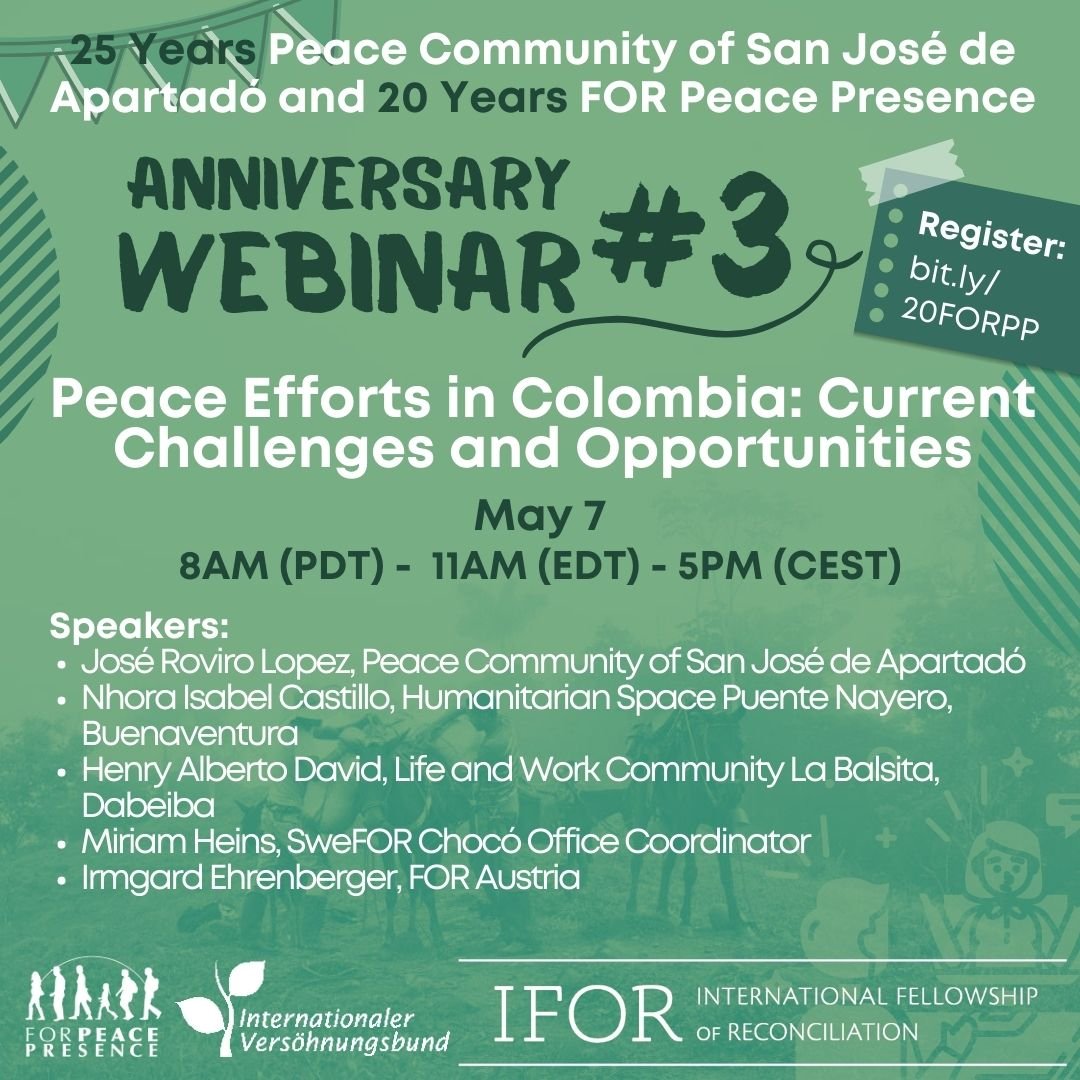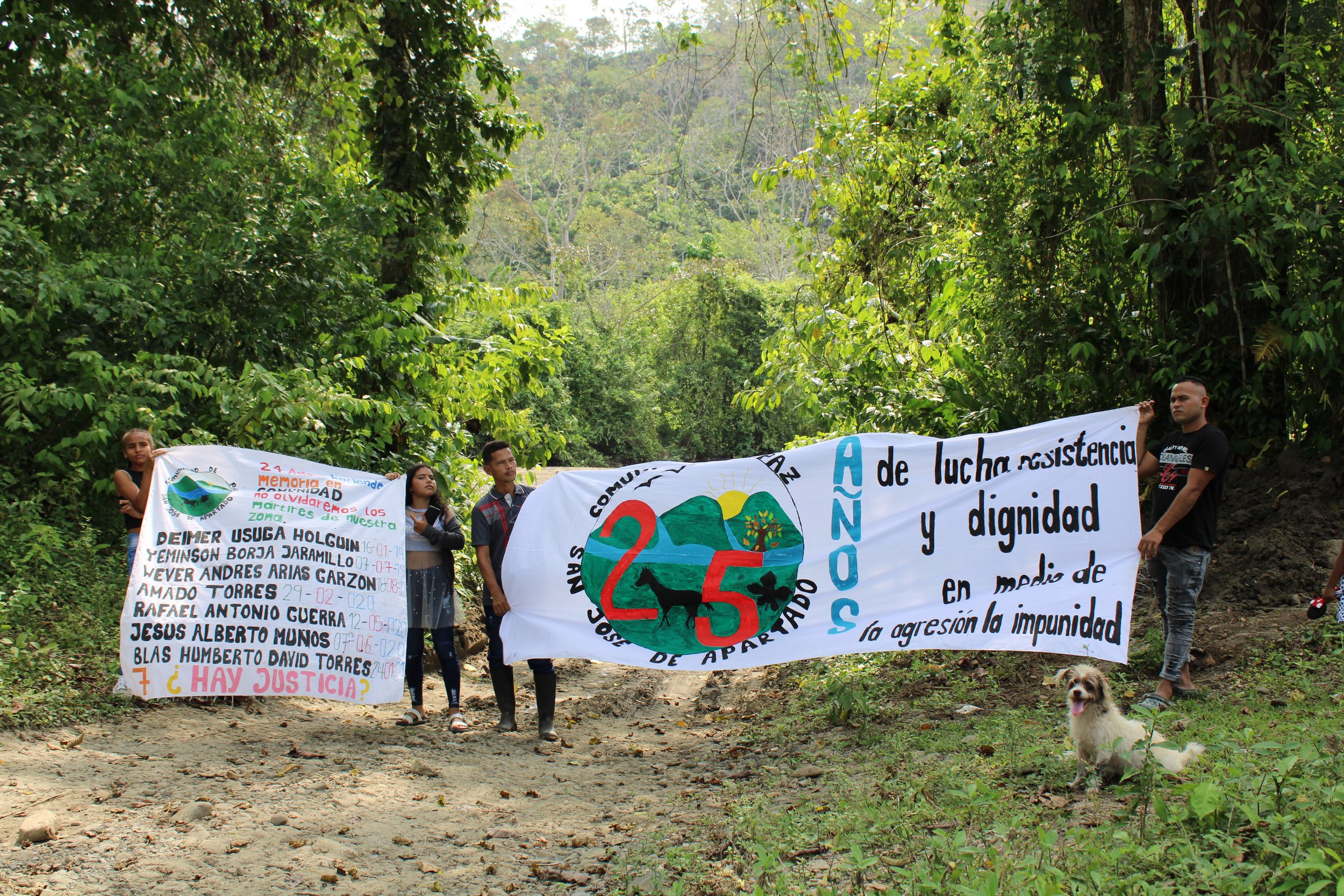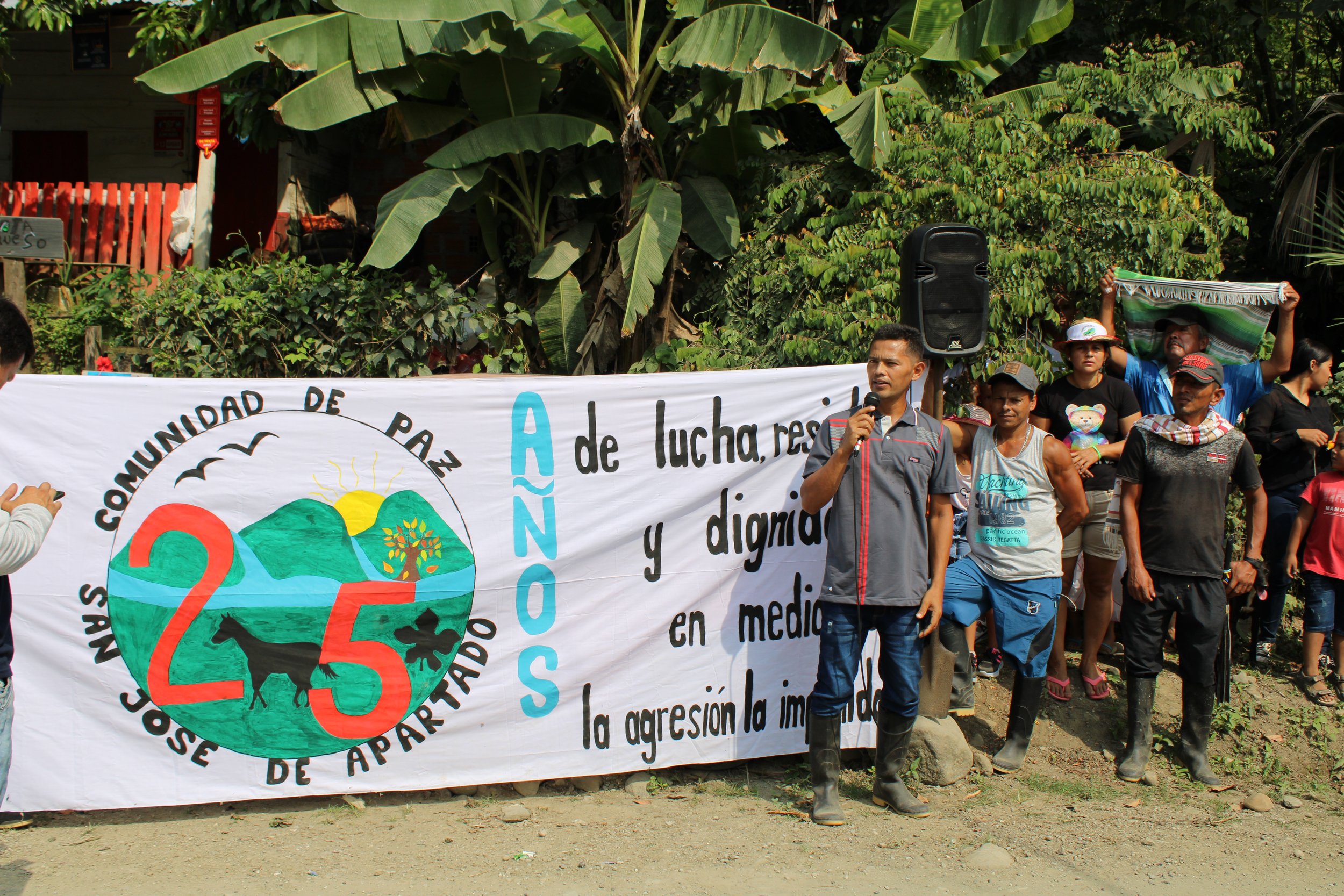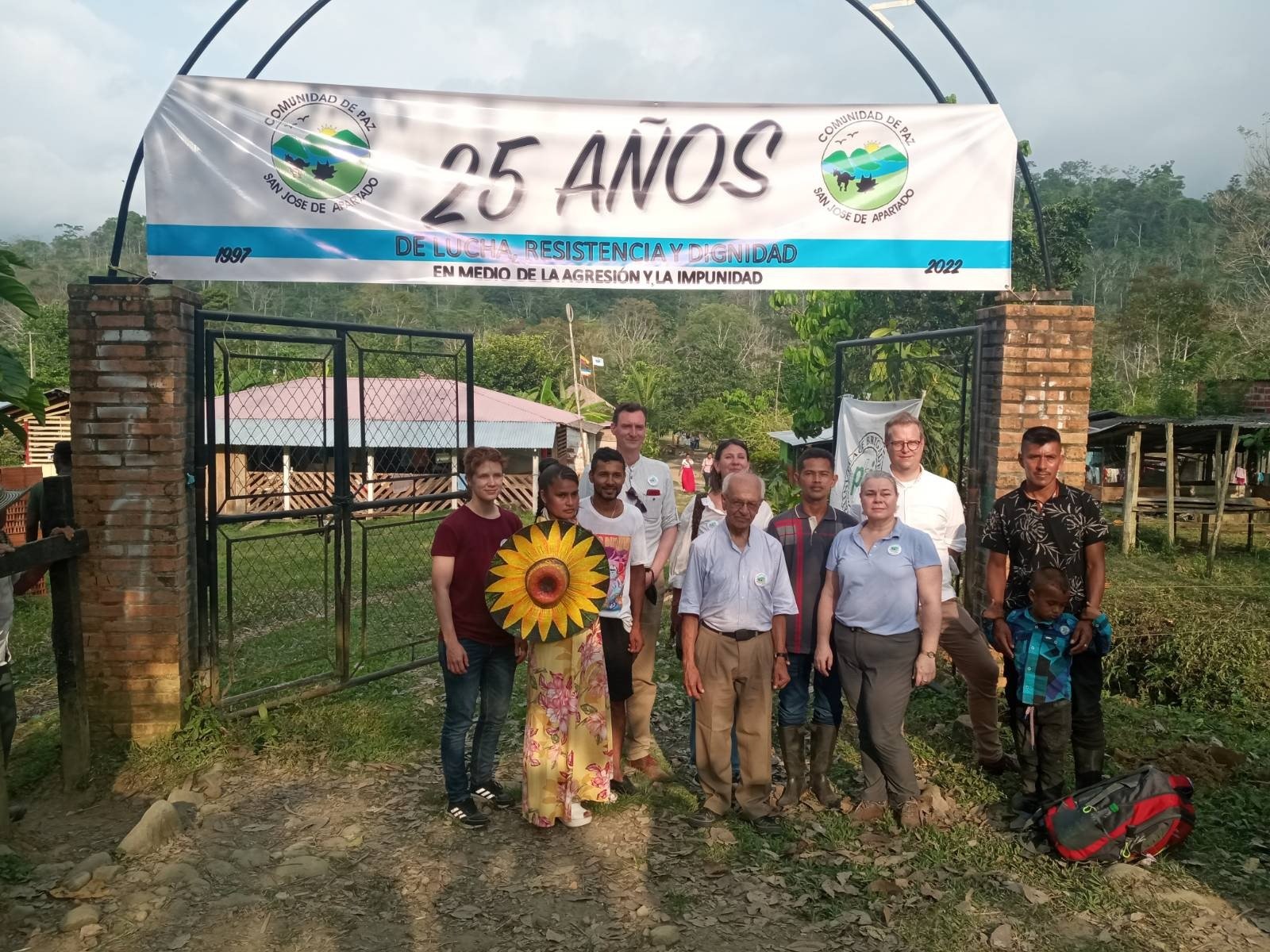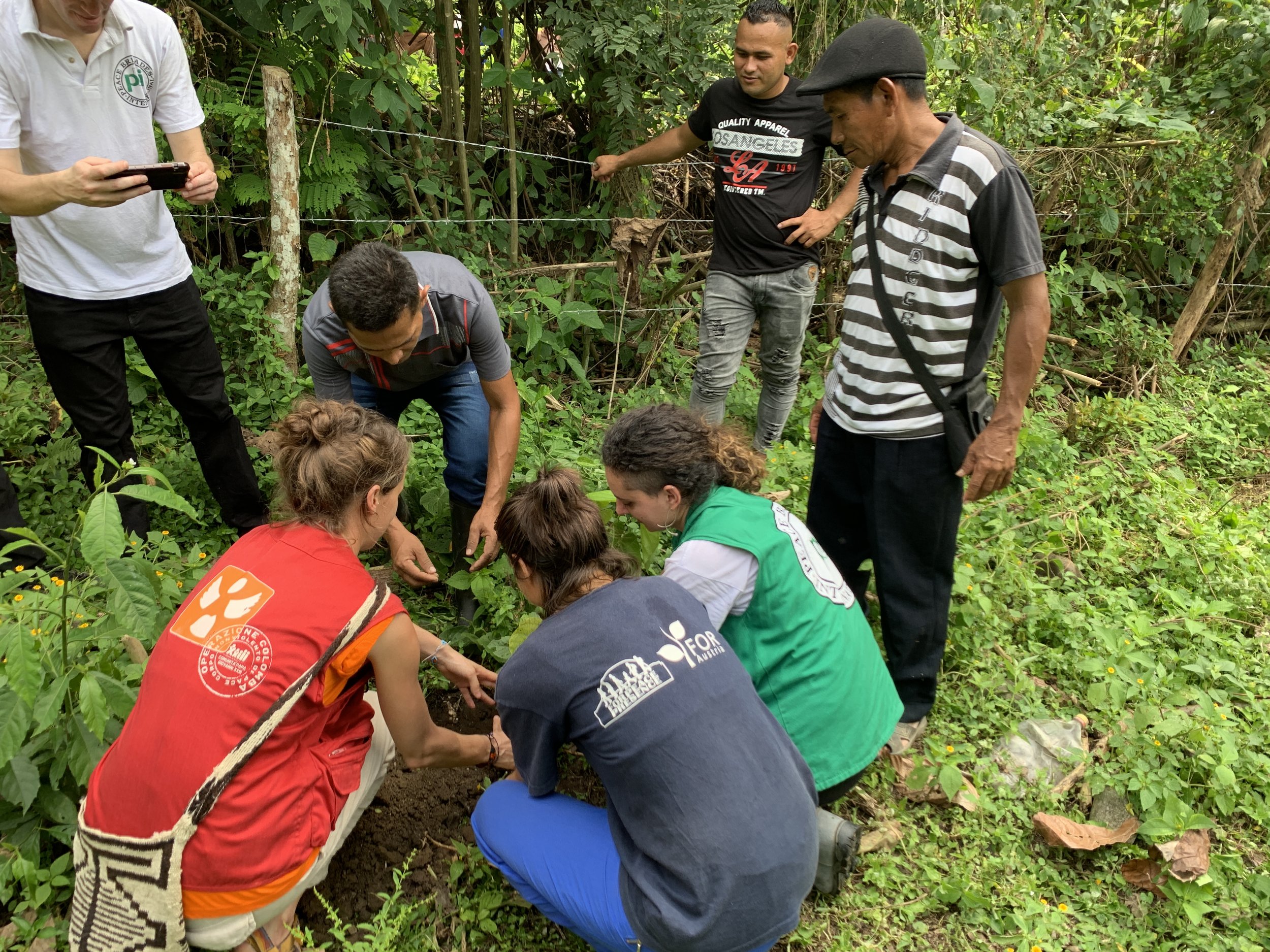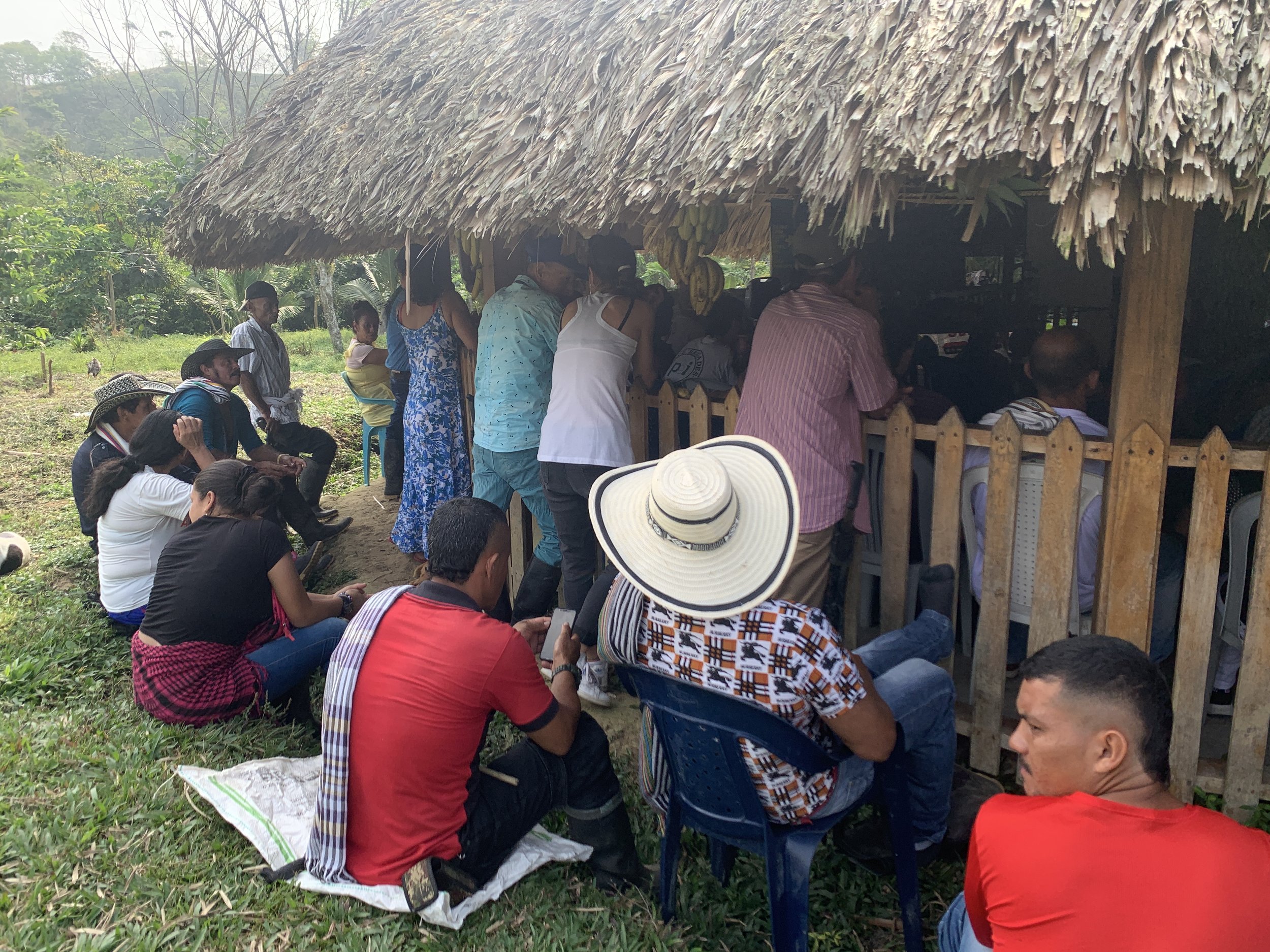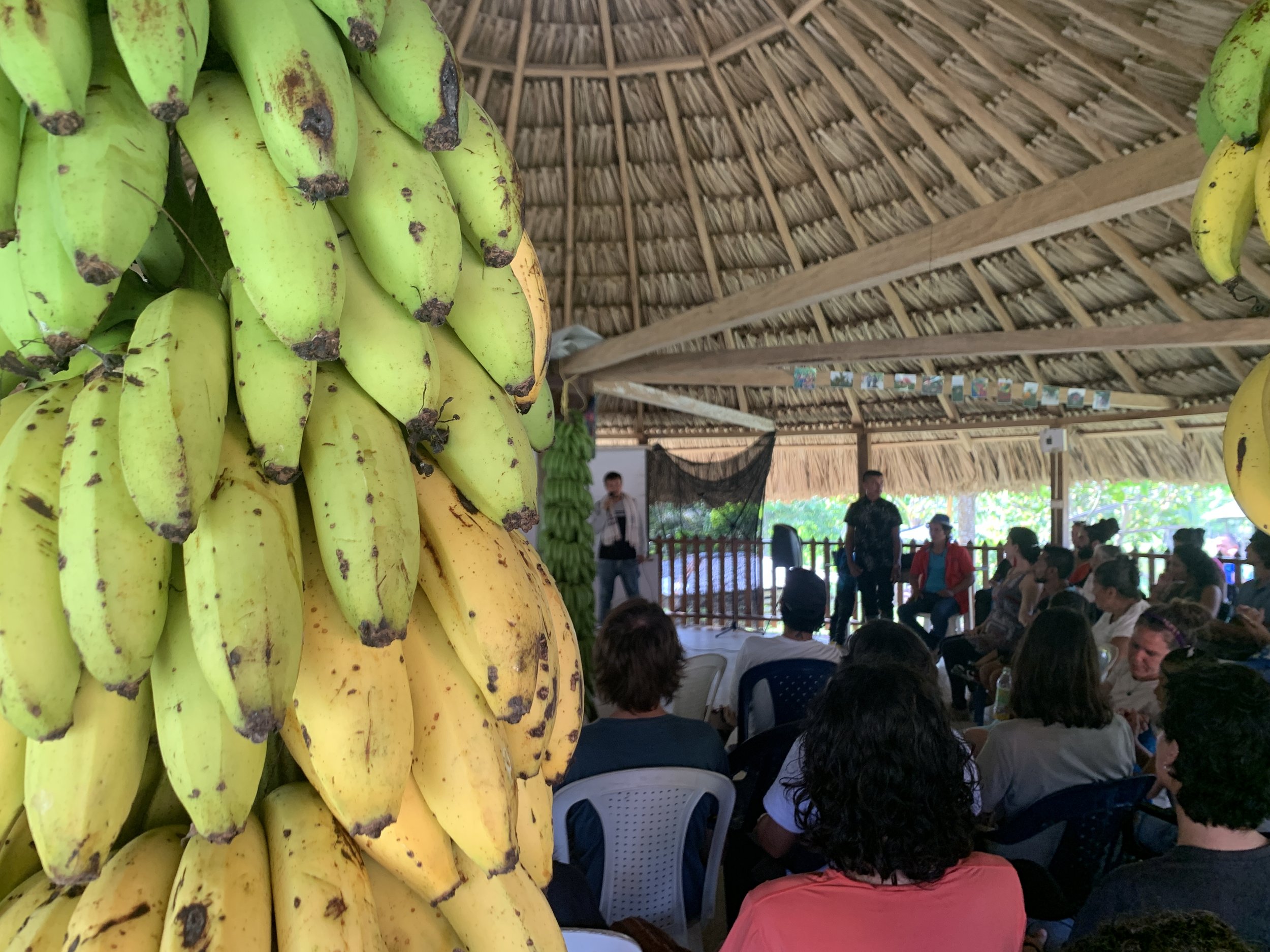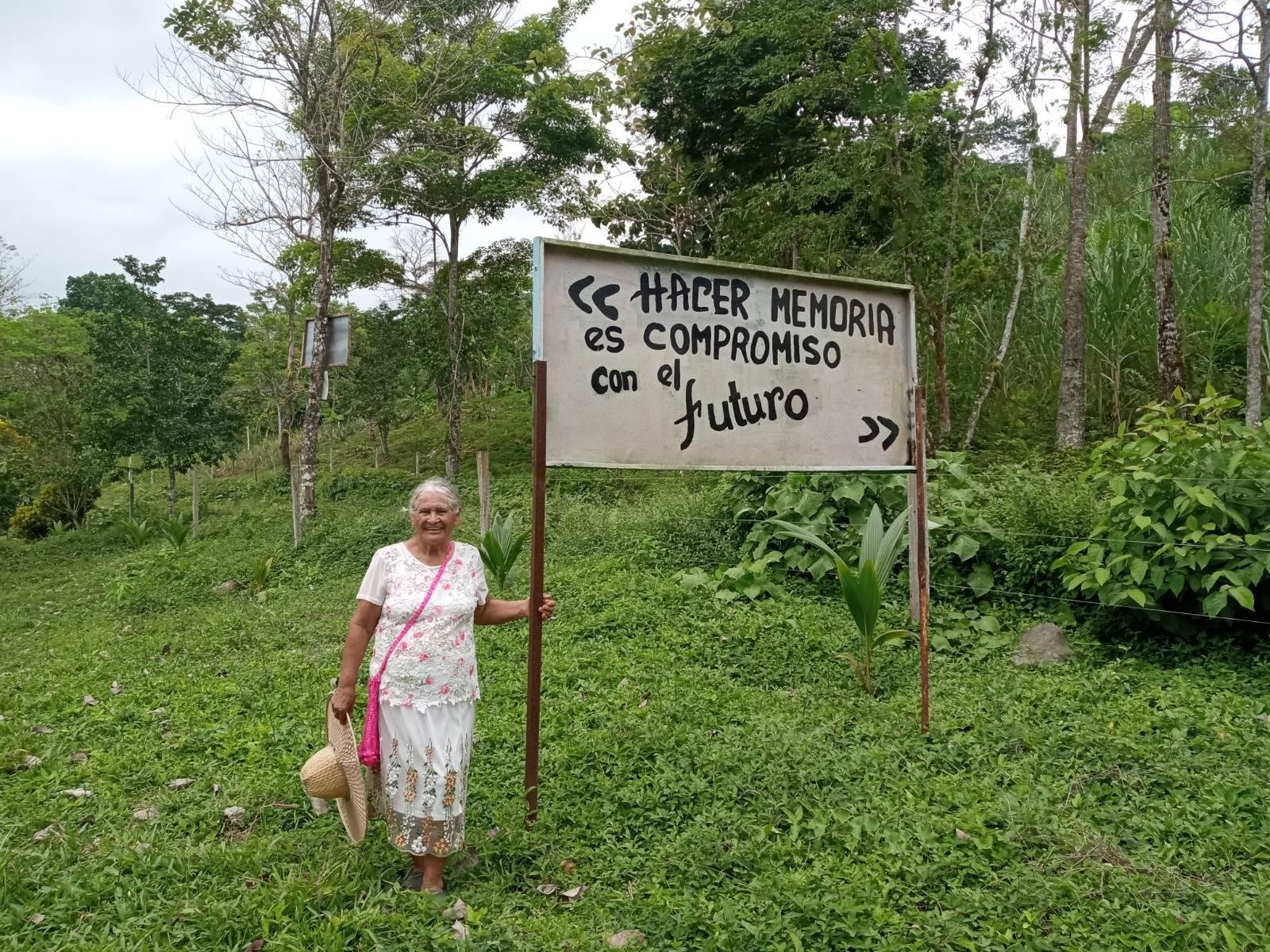JOINT PUBLIC STATEMENT
21 March 2022 EUR 25/5374/2022
Ahead of the hearing before the Council of State, Greece’s Supreme Administrative Court, of the cases of Charis Vasileiou and Nikolas Stefanidis, conscientious objectors to military service whose applications have been rejected by the Deputy Minister of National Defence, Amnesty International, Connection e.V., the European Bureau for Conscientious Objection (EBCO), the International Fellowship of Reconciliation (IFOR) and War Resisters’ International (WRI) call on the Greek authorities to annul the decisions of rejection and grant them a fair examination of their grounds for conscientious objection under an amended legislative framework in line with international and regional human rights law and standards and the recommendations of domestic human rights bodies.
Charis Vasileiou applied in 2020 for conscientious objector status, requesting to perform the (punitive) alternative civilian service. His application was based on his ideological pacifist beliefs originating from the fact that he has been raised in a family of Jehovah’s Witnesses, although he has never become a Jehovah’s Witness himself due to different views on other theoretical aspects of this belief.
His application was rejected in March 2021 by the Deputy Minister of National Defence, after a recommendation by a special committee with military participation, on the grounds that his religious beliefs are not a result of a conscious choice and affiliation with the religious community of Jehovah’s Witnesses.
In a separate but similar case, Nikolas Stefanidis applied in February 2021 for conscientious objector status in order to perform the (punitive) alternative civilian service. His application was also based on his ideological pacifist beliefs originating from the fact that he has been raised in a family of Jehovah’s Witnesses, although not a Jehovah’s Witness himself. His application was rejected in June 2021 by the Deputy Minister of National Defence, after a recommendation by a special committee with military participation. In this case, Stefanidis submitted an appeal in June 2021, but his appeal wasrejected by the same Deputy Minister of National Defence in August 2021, after a recommendation by the same special committee with military participation.
The cases of Charis Vasileiou and Nikolas Stefanidis illustrate two of the most problematic aspects of the legislation and practice concerning the right to conscientious objection in Greece: the lack of independence and impartiality of the procedures of examination of applications for conscientious objector status and the discrimination faced by certain groups of conscientious objectors on the basis of the nature of their beliefs.
The analysis of the five organizations of the cases of Charis Vasileiou and Nikolas Stefanidis, and the applicable national law and practice on the basis of international law and standards and the recommendation of international and domestic bodies, has found that the inadequate procedure of examination of applications for recognition of conscientious objectors is resulting in violations of the right to freedom of thought, conscience and religion. Furthermore, the unequal treatment of conscientious objectors on the basis of the nature of their beliefs grounded on conscience might constitute a violation of the right to equality before the law and equal protection under the law without any discrimination.
A. LEGISLATION AND PRACTICE IN GREECE
The final decision on applications for granting conscientious objector status is taken exclusively by one person, the (Deputy) Minister of National Defence,1 after a non-binding2recommendation of a five-member Special Committee consisting of a military officer, three university professors and one member of the State's Legal Council acting as president. The members of the Committee are appointed by a Joint Decision of the Minister of National Defence, along with the Minister of Economy and Finance and the Minister of Education.3
In practice, the Committee does not summon baptised Jehovah’s Witnesses having a certificate from their church, who are automatically granted conscientious objector status. This approach is the best practice according to OHCHR,4the Human Rights Council5 and the only appropriate practice according to the European Parliament.6 However, the Committee does not apply this to all conscientious objectors and summons those citing other religious grounds or ideological (non-religious) grounds for their conscientious objection. This differentiation has been considered by the Greek Ombudsman as “a standard practice of unequal treatment”.7
According to official figures from 2020 to March 2022 recently obtained by Amnesty International Greece, while the percentage of recognition of conscientious objectors on religious grounds is almost 97%, the percentage of recognition of conscientious objectors on ideological grounds is only 27%.8 The considerable difference between the grounds to grant contentious objector status raise concerns over the state’s duty not to discriminate between conscientious objectors on the basis of the nature of their particular beliefs.
While a person whose application has been rejected has a right to appeal to the (Deputy) Minister of National Defence to change the decision, in practice, the appeal is examined by the same Committee, which recommends again to the Minister. Another possibility for appeal is to the Council of State, that is the Supreme Administrative Court.
B. PROCEDURES AND COMPOSITION OF THE BODY RESPONSIBLE FOR ASSESSING THE APPLICATIONS
International standards and recommendations of international bodies:
• The Parliamentary Assembly of the Council of Europe, has set specific basic principles as for the procedure: Where the decision regarding the recognition of the right of conscientious objection is taken in the first instance by an administrative authority, the decision-taking body shall be entirely separate from the military authorities and its composition shall guarantee maximum independence and impartiality; the decision shall be subject to control by at least one other administrative body, composed likewise in the manner prescribed above, and subsequently to the control of at least one independent judicial body; it should be ensured that objections and judicial appeals have the effect of suspending the armed service call-up order until the decision regarding the claim has been rendered; applicants should be granted a hearing and should also be entitled to be represented and to call relevant witnesses.9
• The then UN Special Rapporteur on religious intolerance, since many years had set the relevant standards: “The decision concerning their status should be made, when possible, by an impartial tribunal set up for that purpose or by a regular civilian court, with the application of all the legal safeguards provided for in international human rights instruments. There should always be a right to appeal to an independent, civilian judicial body. The decision-making body should be entirely separate from the military authorities and the conscientious objector should be granted a hearing, and be entitled to legal representation and to call relevant witnesses.”10 The same standards continue to be cited by the UN Special Rapporteur on freedom of religion or belief as named now11 and the Office of the United Nations High Commissioner for Human Rights (OHCHR).12
• The OHCHR has determined that “Independent and impartial decision-making bodies should determine whether a conscientious objection to military service is genuinely held in a specific case. Such bodies should be placed under the full control of civilian authorities”.13 In the same report, the OHCHR has set up several minimum criteria so that application procedures are in line with international human rights norms and standards.14 The OHCHR has also cited acceptance of applications without inquiry as a best practice.15
• Already since 1998, the then UN Commission on Human Rights has welcomed the fact that some States accept claims of conscientious objection as valid without inquiry.16 The same has been repeated by its successor, the UN Human Rights Council.17
• The European Parliament has repeatedly pointed out that “no court or commission can penetrate the conscience of an individual” and has favoured the position that a declaration setting out the grounds should suffice for somebody to be recognized as a conscientious objector.18
Recommendations of international and Greek bodies specifically to Greece
Greece has received numerous recommendations, even after the amendment of the legislation in 2019, which reduced the number of military officers in the special committee from two to one.19
• The European Court of Human Rights, in the Papavasilakis’ case20, a case similar to those of Vasileiou and Stefanidis insofar as Papavasilakis was also someone raised in a family of a Jehovah’s Witness without being one himself, condemned Greece for violation of Article 9 of the European Convention of Human Rights (concerning the freedom of thought, conscience and religion). The Court stressed that the independence of the members of the competent body constitutes one of the fundamental conditions for the effectiveness of the examination of a case of a conscientious objector. The Court highlighted that the special committee had examined the case of the claimant in the presence of three – out of a total of five – members, with two of them being military officers, which resulted in the military being the majority. It has also pointed out that in this case, the fact that the final decision has been taken by the Minister of National Defence does not afford the requisite guarantees of impartiality and independence.
• The UN Human Rights Committee in 2005 had expressed its concern for the fact that the examination of applications was solely under the control of the Ministry of Defence, and had recommended Greece to consider placing the assessment of applications for conscientious objector status under the control of civilian authorities. 21 The Committee, indirectly but clearly, found that the Ministry of National Defence is not a civilian authority, and has expressed similar positions in the case of Russia too.22 Ten years later, it expressed its concerns, about, among other things, “the composition of the Special Committee and its reported lack of independence and impartiality”, and recommended Greece to “consider placing the assessment of applications for conscientious objector status under the full control of civilian authorities”.23 Furthermore, in its recent views on the Petromelidis v. Greece case, the Committee has reiterated that Greece “should review its legislation with a view to ensuring the effective guarantee of the right to conscientious objection under article 18 (1) of the Covenant”.24
• The Commissioner for Human Rights of the Council of Europe has explicitly recommended to Greece the “transfer of administrative responsibilities as regards granting conscientious objector status from the Ministry of Defence to an independent civilian department”.25
• The UN Special Rapporteur on freedom of religion or belief, since 2006, has adopted and stressed the recommendations of the UN Human Rights Committee to Greece, to consider placing the assessment of applications for conscientious objector status under the control of civilian authorities.26 In 2016, the UN Special Rapporteur highlighted the case of a rejected applicant, asked for him to be examined by an independent and impartial body, repeated the recommendations of the Human Rights Committee and urged the Greek authorities “that all necessary interim measures be taken to halt the alleged violations and prevent their re-occurrence and in the event that the investigations support or suggest the allegations to be correct, to ensure the accountability of any person(s) responsible for the alleged violations”.27 In July 2019, after the amendment of the legislation which reduced the number of military members in the special committee, the UN Special Rapporteur referred to the “the recently adopted law (4609/2019), which regrettably fails to recognize the status of conscientious objectors (COs) to military service in accordance with international human rights standards”. The Rapporteur also noted that “The assessment procedure remains unchanged”, and referred to the recommendations of the Human Rights Committee, pointing out that “the assessment of applications for conscientious objector status should be within the jurisdiction of civilian authorities”.28
• The OHCHR in 2017 has highlighted the concerns and recommendations of the Human Rights Committee, and the ECtHR judgement.29 In 2019, the OHCHR has explicitly stated about the bill (law 4609/2019) that it “remains problematic, given that, despite the new composition of the five-membered special committee with the inclusion of only one military officer (rather than of two), the assessment of applications for conscientious objections status is still not under the full control of civilian authorities”.30
• The Greek Ombudsman has stated: “The personal interview as a mean to ascertain reasons of conscience is controversial per se, insofar it submits an internal esprit to an examination of sincerity”.31
• The Greek National Commission for Human Rights has repeatedly recommended: “The competent authority deciding whether a person should be assigned to an alternative service or not, must be independent and should not include members of the military administration”.32 In 2019, commenting on the bill (now law 4609/2019), the GNCHR, explicitly stated that despite the reduction of the military officers the bill does not fully comply with the recommendations of monitoring bodies such as the Human Rights Committee, the UN Special Rapporteur on freedom of religion or belief and the Commissioner for Human Rights of the Council of Europe.33 In 2021, in its submission for the 3rd Cycle of UPR, the GNCHR has reiterated that “The assessment of applications for conscientious objector status is still not placed under the full control of civilian authorities”.34
Breaches:
Because of the inadequate procedure of examination of applications for recognition of conscientious objectors, there is a violation of the right to freedom of thought, conscience, religion and belief, as set out in Article 18 of the ICCPR, as well as Article 9 of the ECHR.
The current legislation on the examination of applications for alternative service continues to be in contravention of the recommendations of the UN Human Rights Committee by not requiring the new Special Committee to be wholly civilian and ensuring that the decision of granting conscientious objector status is not made by the Minister of Defence.35
C. DISCRIMINATION BASED ON DIFFERENT GROUNDS OF OBJECTION
International standards and recommendations of international bodies:
• The OHCHR has compiled the minimum criteria in order for the procedures for conscientious objector status to be in line with international human rights law and standards. Among them, there is the requirement for: “Non-discrimination on the basis of the grounds for conscientious objection and between groups. Alternative service arrangements should be accessible to all conscientious objectors without discrimination as to the nature of their religious or non-religious beliefs; there should be no discrimination between groups of conscientious objectors.”36
• The Human Rights Committee, in its General Comment 22, has stated that “there shall be no differentiation among conscientious objectors on the basis of the nature of their particular beliefs”.37 Subsequently, the Committee, in the context of its concluding observations, has consistently advocated for recognition of “the right to conscientious objection to military service without discrimination as to the nature of the beliefs (religious or non-religious beliefs grounded in conscience) justifying the objection”,38 or “without limitation on the category of conscientiously held beliefs”, 39 and has expressed concerns “about the limiting of conscientious objection to military service only to members of registered religious organizations whose teaching prohibits the use of arms”.40
• The Human Rights Council has reminded states of “the requirement not to discriminate between conscientious objectors on the basis of the nature of their particular beliefs”.41
Recommendations of international and Greek bodies specifically to Greece
• The Human Rights Committee, specifically in the case of Greece, has expressed concerns about “reports indicating discrimination on the basis of different grounds of objection to service” and has recommended that the alternative service should be “accessible to all conscientious objectors”.42 The Committee has recently referred to its previous concluding observations in the “List of issues prior to submission of the third periodic report of Greece” and asked Greece to “report on the measures taken to provide all conscientious objectors with an alternative to military service” (emphasis added). 43
• In the context of the Second Cycle of Human Rights Council’s Universal Periodic Review (UPR), Greece received a recommendation asking inter alia for the alternative service to be “accessible to all conscientious objectors”.44Greece did not accept the recommendation.45 In the context of the Third Cycle of Human Rights Council’s Universal Periodic Review (UPR), Greece received a similar recommendation asking inter alia for “an alternative service to military service to which all conscientious objectors have access to”.46 Greece accepted the recommendation this time, which is yet to be implemented.47
• The OHCHR has highlighted both the Human Rights Committee’s concerns48 as well those of the Greek Ombudsman (see below) and the fact that Greece has rejected the recommendations about conscientious objectors in the context of UPR.49 • In 2016, the UN Special Rapporteur on freedom of religion or belief, referred to information received that the special committee “repeatedly rejects applicants who do not belong to the Jehova[h]’s Witnesses denomination”.50 In 2019, the UN Special Rapporteur referred to the concerns of the Human Rights Committee, stating that the recognition of the status of conscientious objector should not be executed in a discriminatory manner based on different application grounds.51 • The Greek Ombudsman has referred to “a continuous practice of unequal treatment: while for the so called “religious” objectors the committee is satisfied by the submission of the certificate of the relevant religious community and do not even summon them to an interview, the so called “ideological” objectors are often required to answer to questions concerning sensitive personal data, as for example the affiliation to a specific political tendency (cases 165151, 167596, 168243/2013).”52
Breaches:
The unequal treatment of conscientious objectors on the basis of the nature of their beliefs is a form of discrimination that constitutes a violation of Article 26 of the ICCPR, that entitles all persons to equality before the law and equal protection of the law without any discrimination.
D. RECOMMENDATIONS
Amnesty International, Connection e.V, the European Bureau for Conscientious Objection, the International Fellowship of Reconciliation and War Resisters’ International make the following recommendations:
• Annul the ministerial decisions of rejection of the applications of Charis Vasileiou, Nikolas Stefanidis and other similar cases and grant them a right to a fair examination of their grounds for conscientious objection protected and upheld under an amended legislative framework in line with international and regional human rights law and standards and the recommendations of domestic human rights bodies.
• Transfer the procedure of examination of applications for conscientious objector status under the full control of civilian authorities (i.e. to be transferred from the Ministry of National Defence) by a panel with a wholly civilian composition. The procedure should be conducted without delay and in a way that guarantees maximum independence and impartiality.
• Accept claims of conscientious objection as valid without inquiry, as a best practice highlighted by UN and regional bodies. • Take immediate action in addition to the above to ensure compliance with the requirement not to discriminate between conscientious objectors on the basis of the nature of their particular beliefs.


